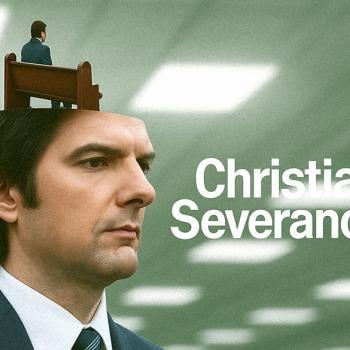The great French film director Francois Truffaut once said it was impossible to make an anti-war film; the truly successful film would—just by depicting the drama, tension, and violence of battle—almost certainly entice an audience into excitement about war. This quote inspired an Internet meme: "Truffaut was right" (alternatively known as "Do Not Do This Cool Thing").
I begin with this observation not just because evil unfortunately always seems much more enticing than good (John Milton's Paradise Lost famously makes Satan its most interesting character, and Thomas Kenneally says in Schindler's List that it is a difficult thing to have to write about virtue) but because it's rare that we allow ourselves (or are allowed) to even think through these reactions.
That's why I think Logan Mehl-Laituri's new book Reborn on the Fourth of July is so important. It actually dissects his (and our) reactions to war and battle in such a psychologically and theologically honest way that we can honestly say that with this book, he has written something that is genuinely anti-war.
We celebrate the Fourth of July this week, and patriotism fills the air. And yet I've chosen to write about this new book by a conscientious objector who wrestled not just with his conscience, but with the Army and also with his relationship to American Christian culture. Raising such a topic at this time might seem anti-American, but I don't intend that. In Faithful Citizenship, I said something very much like Mr. Mehl-Laituri does in his book: "I love my country. But I love God more."
Because so many Americans claim Christianity as home base, it is important that we ask the hard questions about why we go to war, what our aims should be, how we treat those with whom we fight, how we treat those who fight on our behalf, and what the Christian tradition says about war and violence. And what better time to do that than when we celebrate our freedoms to think, worship, and associate as we wish?
At one point, Mr. Mehl-Laituri alludes to Augustine's Confessions, and talks about how he wanted to take that title for his book. In doing so, he consciously references the modern meaning of the word: the confession of a penitent to a priest, or of a wrongdoer to some other authority. But as Garry Wills writes in his biography of Augustine, Augustine would have understood "confession" in three ways, only one of which would have been about 'fessing up to one's sins.
Confession in a broader sense is also about confessing the movement of God in one's life, and confessing the greatness of God. That's why Augustine chose to call his great work Confessions (and why, incidentally, Mr. Wills translates that work's title in his book as Testimony). Reborn on the Fourth of July also displays these additional meanings of confession, particularly as Mr. Mehl-Laituri attempts to find some meaning in his journey and listens for how God might be speaking authentically in the various forms of Christianity that rise in front of him along the way.
Take, for example, a conversation with Uncle Jimmy, a Christian whose teaching had been formative for him and that normally centered around love. When Mr. Mehl-Laituri asked Uncle Jimmy about military service, he was surprised to hear his teacher espouse a holy war theology that understands the United States military as "God's hand of judgment in the Middle East":
I tried my best to consider if what I did in Iraq had any divine purpose. It has been said that war is an attempt at ordering chaos, just as God did cosmically at creation. But it has also been said—more accurately in my opinion—that war is hell. It certainly felt that way to me, so I couldn't bring myself to agree with Jimmy that God would bless war as readily as we expect him to. (81)





